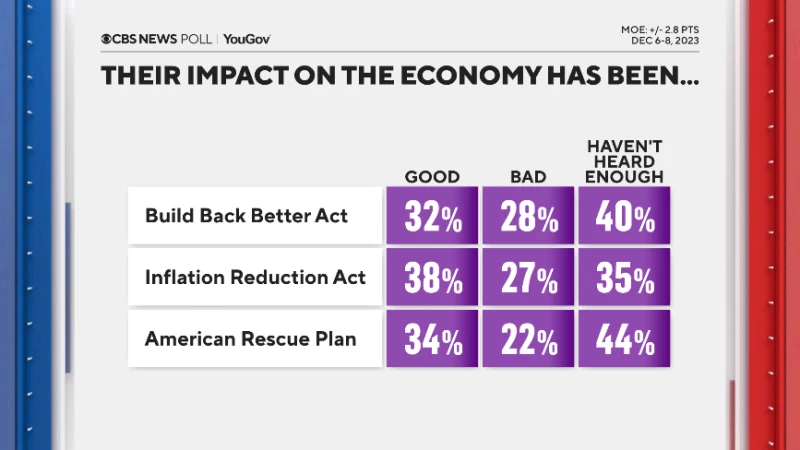Inflation's Impact on Americans' Standard of Living
Recent inflationary pressures in the United States have not only affected Americans' pocketbooks, but also have had a broader impact on the nation's economic landscape. Many believe that inflation is stifling opportunities and making it harder for Americans to achieve the American Dream.
A growing number of people, particularly millennials and Gen-Xers in their prime working years, now feel that their standard of living is worse than that of their parents. This sentiment challenges the traditional notion of progress and upward mobility that has long been associated with the American Dream.
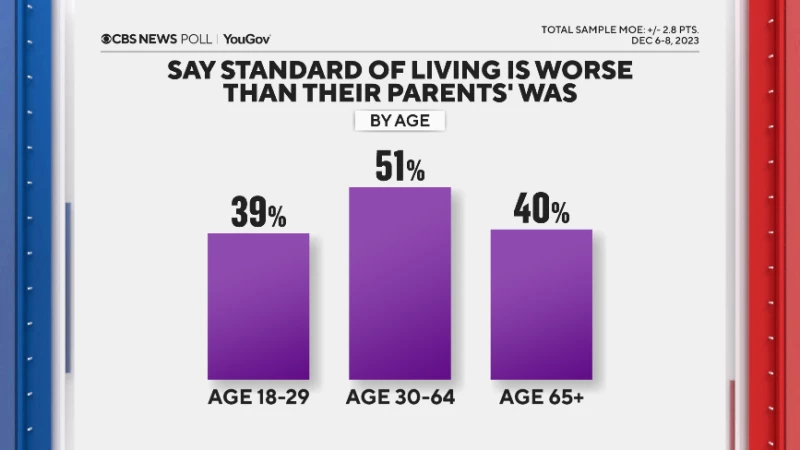
It's been four decades since Americans have seen inflation like they have in recent years. When asked to put current troubles in context, Americans say the economic difficulties arising out of the pandemic have been the worst in a couple of generations, more so than the crash and Great Recession of 2008-09, other recession periods in the 90's and 80's, and more so than the inflation and gas shortages of the 1970s.
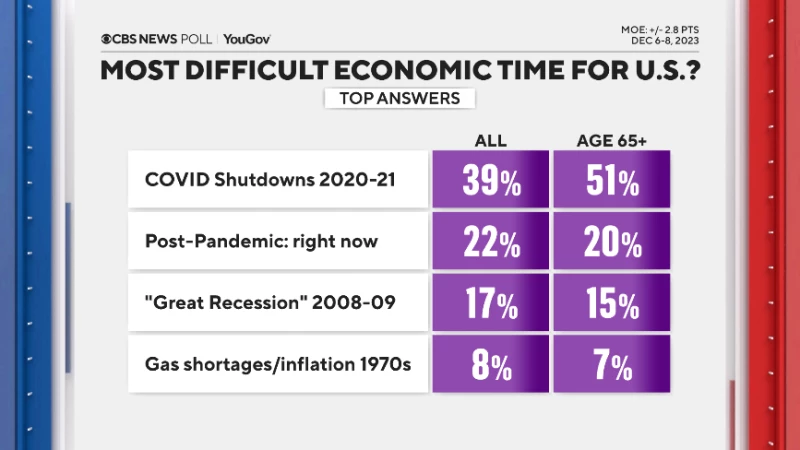
Today will surely be fresher in mind and bring some recency effects here, but it does underscore the fact that many adults have not been through this kind of inflation before. (And for those over 65, who were adults in the 1970s, the country's more recent difficulties stand out for them, too.)
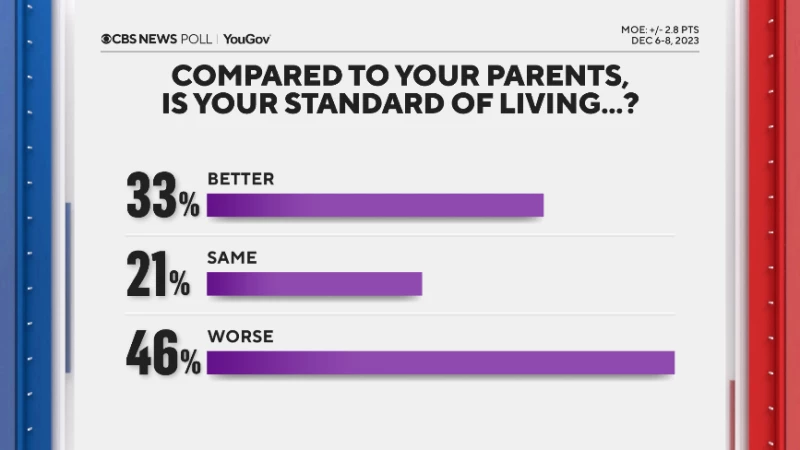
The "disconnect" between micro and macro?
For months, the nation's traditional "macro" numbers like job growth and employment, GDP and even the rate of inflation have often shown signs of strength or improvement.
So, we just asked directly what they pay attention to — and people say they pay more attention to personal experience than to these kinds of economic figures.
And the job market may be strong, but an overwhelming three-quarters feel their incomes aren't keeping up with inflation.
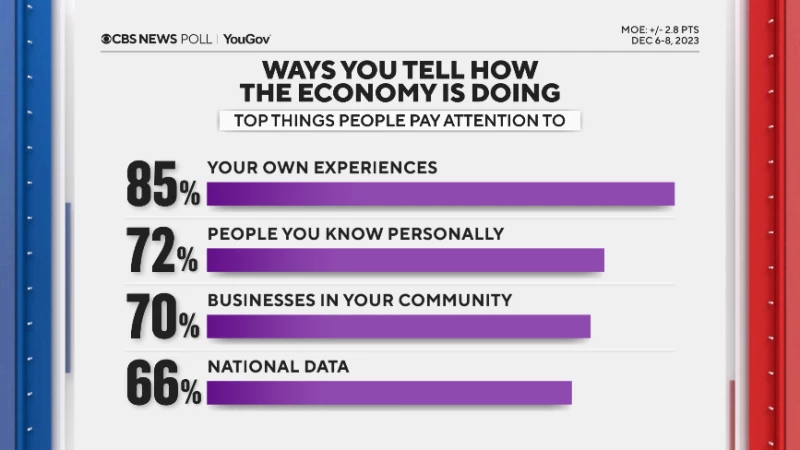
There's a prevailing feeling that opportunity is only increasing for the wealthy, not the middle class. In all, Americans have voiced skepticism about unequal opportunities for a while, but today the larger idea that "everyone has a chance to get ahead" is down compared to before the pandemic.
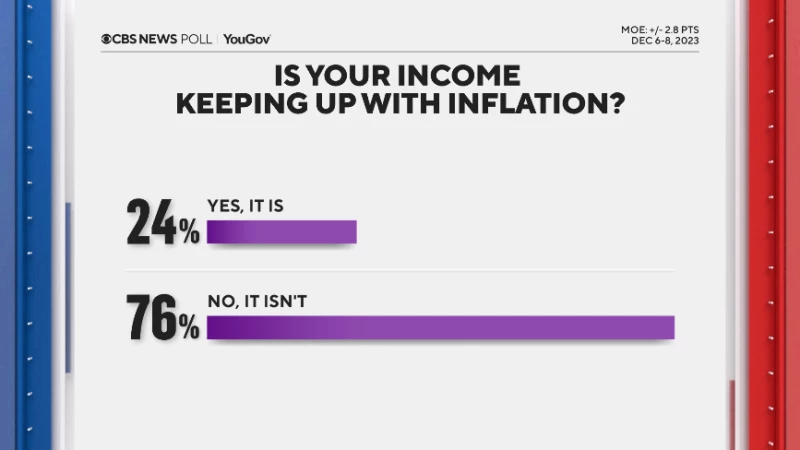
So what can we do?
Public Opinion on Inflation Control
It seems that more interest rate hikes are not a popular solution for controlling inflation, especially among those in the lowest income bracket. Additionally, Americans are not willing to see unemployment rise as a consequence of higher rates if it means dampening inflation.
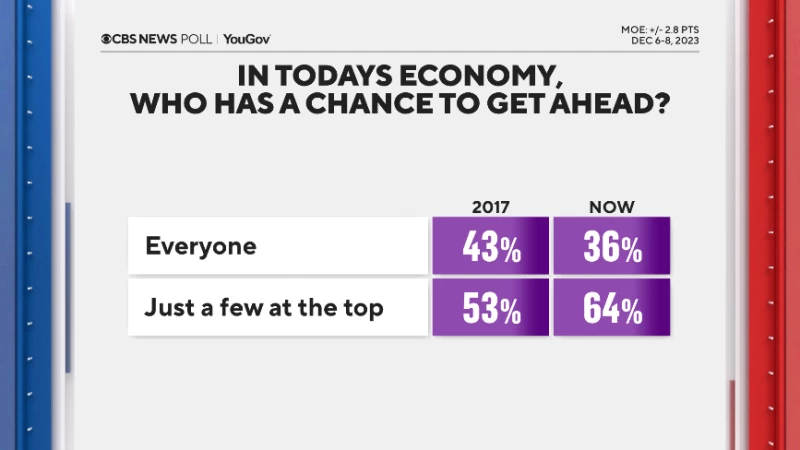
Interestingly, when the nation faced high inflation in the late 1970s, a CBS News poll asked about the idea of government price controls. We posed a similar question now and found that a majority of Americans would support the hypothetical idea of price controls.
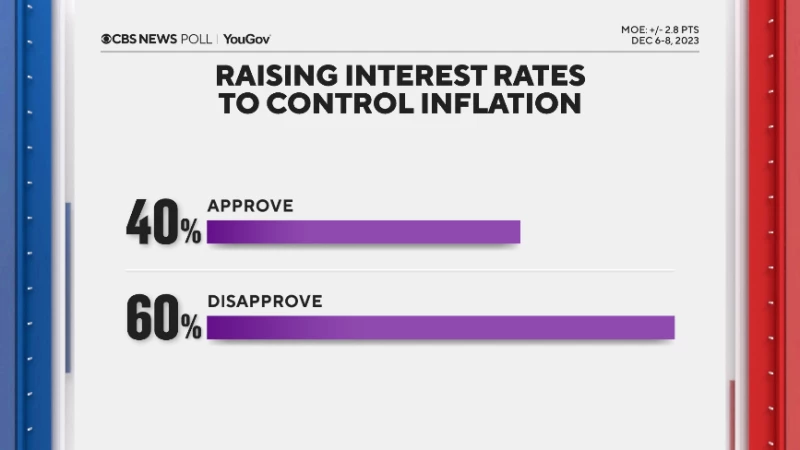
Surprisingly, support for price controls extends to both Democrats and Republicans, with more than half of Republicans also in favor. This goes against the assumption that Democrats are more inclined towards a free-market approach.
Can a President Control Inflation?
Most Americans believe that a president has the ability to control inflation. This belief is consistent with similar questions asked in the 1970s and 80s. However, it is important to note that the world's economy is complex, and there are multiple factors contributing to inflation. Therefore, people's perception of the president's power may not necessarily align with reality.
Regardless, President Biden's handling of inflation continues to receive poor marks, possibly due to the high inflation rates.

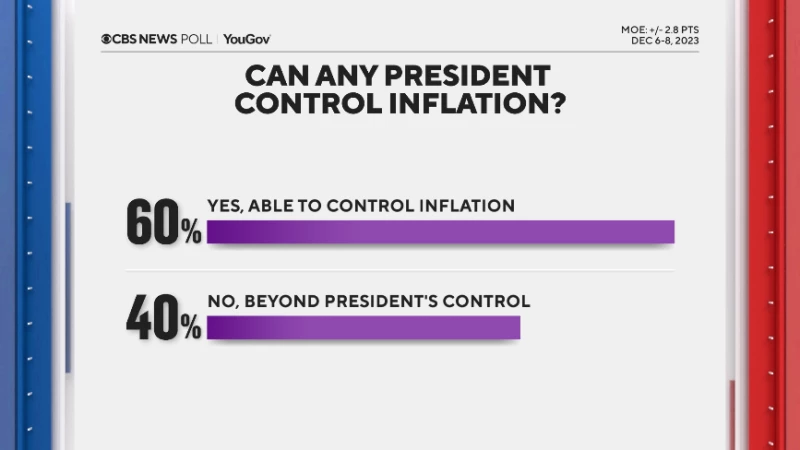
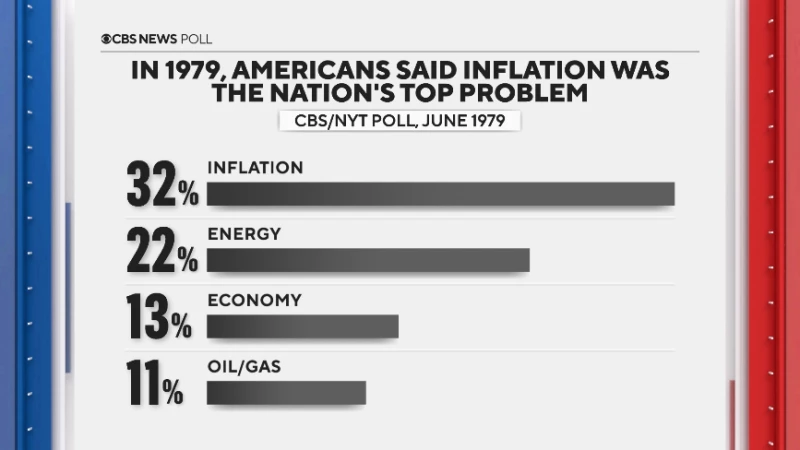
People don't blame themselves for inflation in the form of "higher consumer demand." Their main causes point further afield, to international factors, suspicion of companies overcharging and government spending.
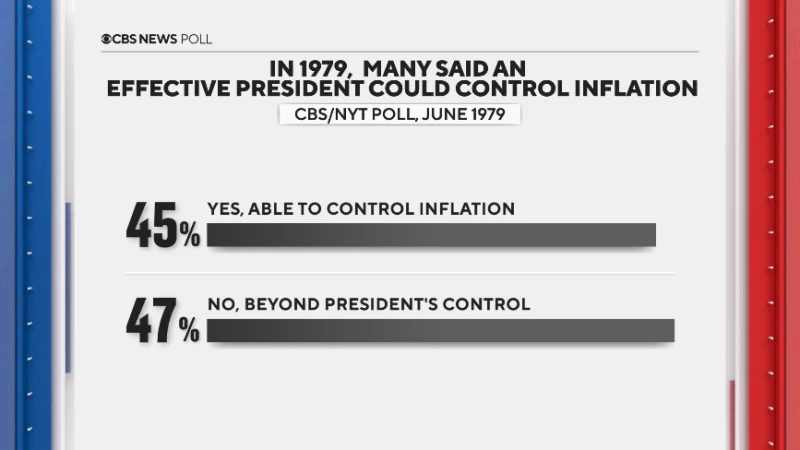
Inflation remains the top reason people say they feel the economy is bad, when they do. Views of the economy, overall, are still broadly negative (though a lot of that is driven by partisanship, too) and closer again to where they were this spring than this fall. The pattern this year has been the number saying "bad" floating around in the low to mid-60's; perhaps reflective of some ongoing uncertainty about its overall outlook.

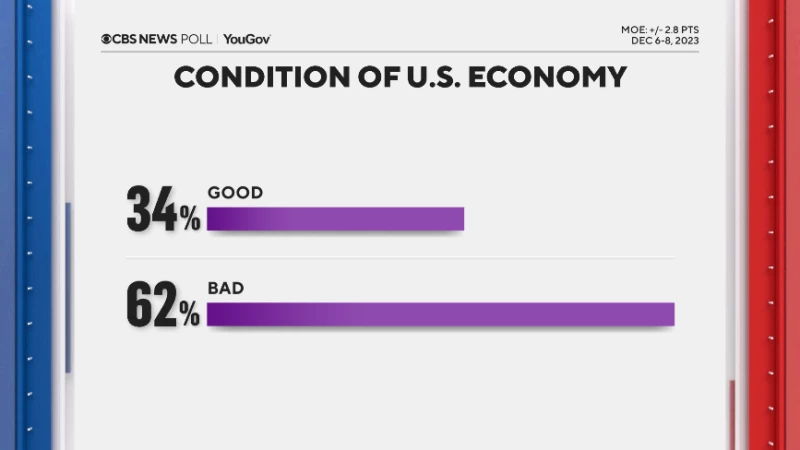
Mr. Biden still gets large disapproval for handling inflation and Americans are still more apt to think his administration's actions have led to it growing, not slowing.
The Biden administration often touts its legislative record on the economy, but Americans' evaluations of things like the Build Back Better Act and the Inflation Reduction Act are mixed. Many, including in the president's own party, say they have not heard enough about them, at least not by name.

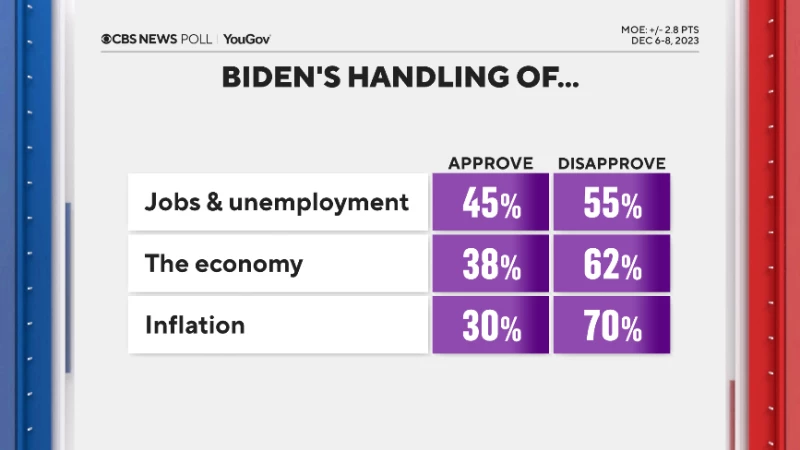
This survey was conducted with a nationally representative sample of 2,144 U.S. adult residents interviewed between December 6-8, 2023. The sample was weighted according to gender, age, race, and education based on the U.S. Census American Community Survey and Current Population Survey, as well as past vote. The margin of error is ±2.8 points.
In the polling referenced from 1979 and 2017 the interviews were conducted with respondents by telephone using RDD samples. The most important problem item from 1979 was coded at the time from open-ended responses.
